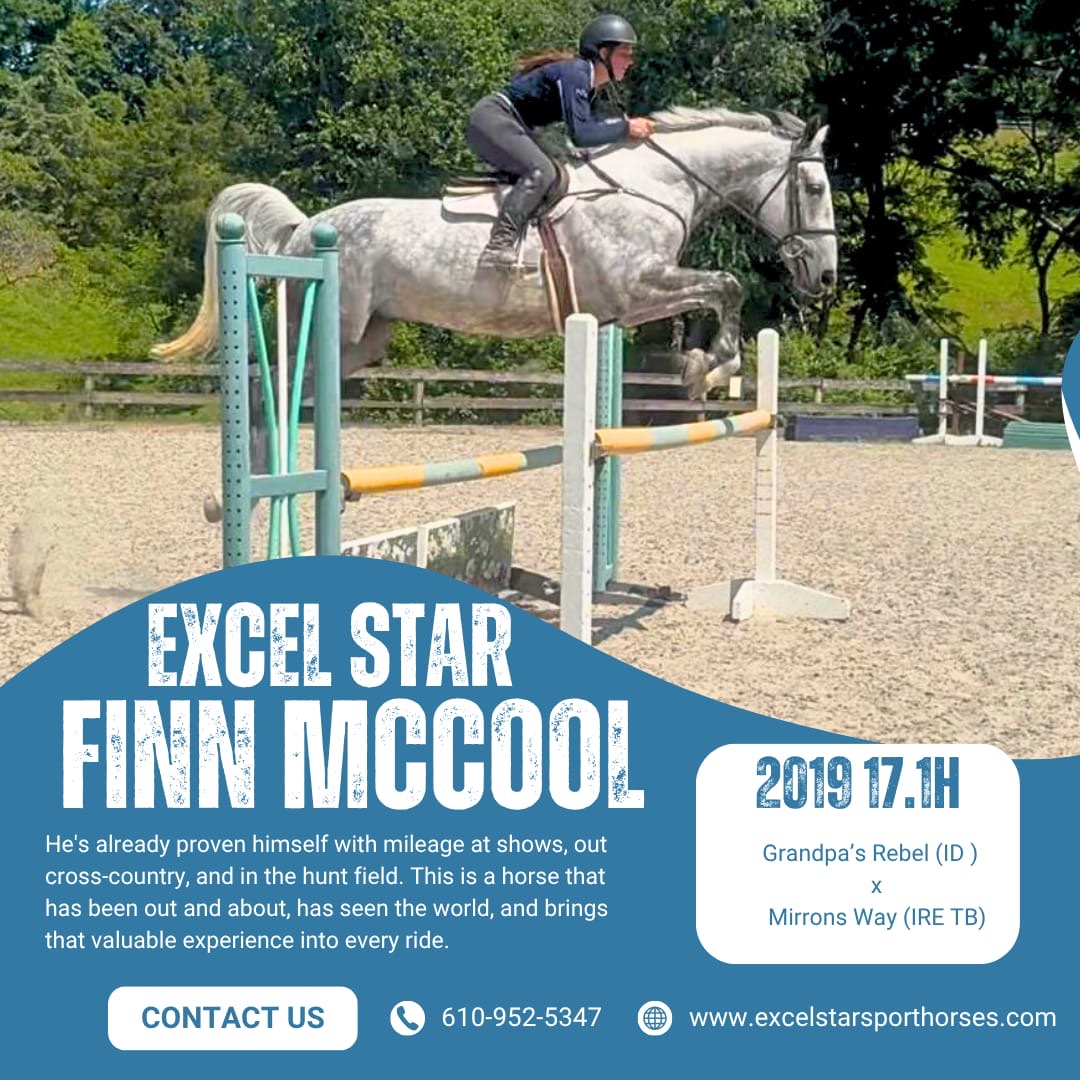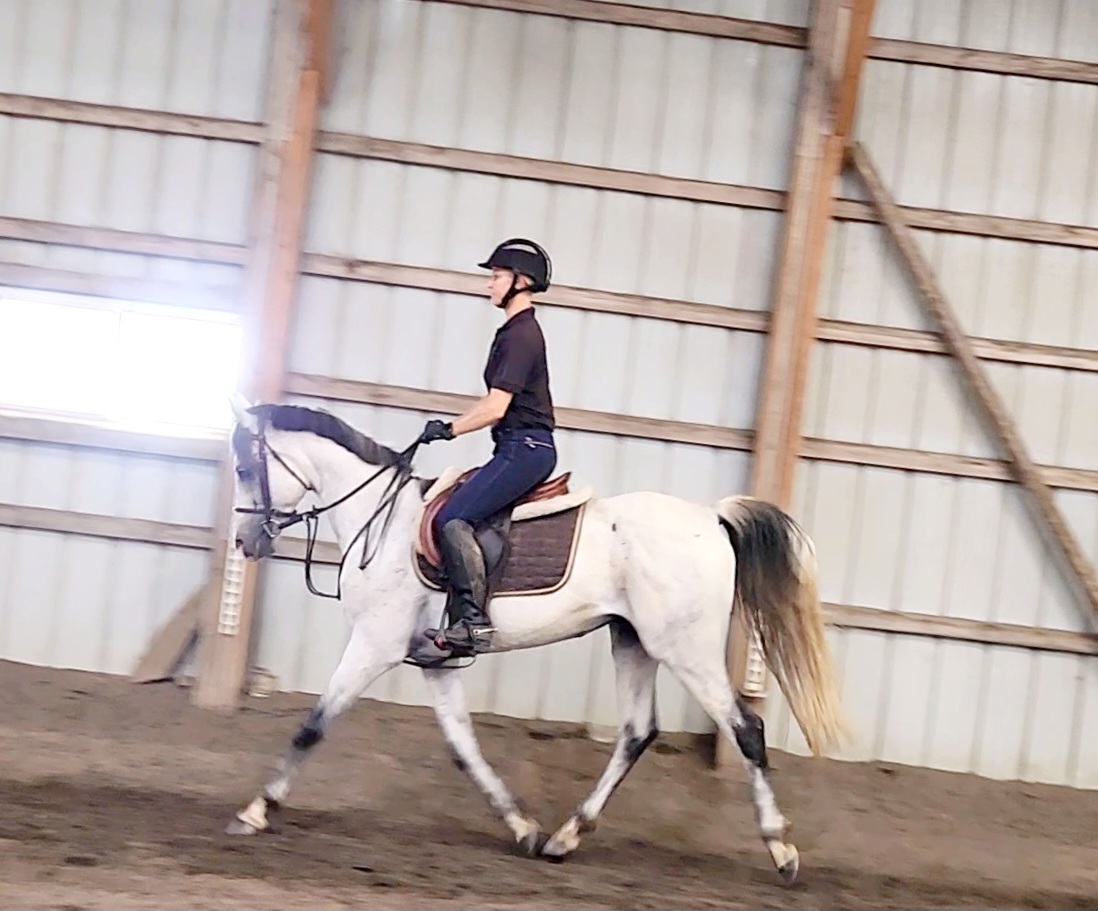
Tyler Held shares a moment with FE Lifestyle. Photo by Tilly Berendt.
Dr Tyler Held is a professional groom and Sport and Performance Psychology Consultant. You may have seen her over the last few years working for 5* rider Jennie Brannigan or listened to an episode of her podcast, The Whole Equestrian. Tyler started riding at summer camp at the age of 5 and essentially never looked back. She obtained her Undergraduate degrees in Animal Science and Equine Business Management from the University of Findlay in 2014. During this time, she spent her summers doing her first working student job at an eventing barn and quickly became obsessed with the sport. After experiencing some mental blocks in her own riding, she decided to focus on grooming and learning more about Sport Psychology. In 2017 she moved to Chester County, PA to work as a Vet Tech and groom for Dr. Kevin Keane, which opened a lot of doors in the eventing community. Just as she finished her Master’s Degree in Sport and Performance Psychology, she took the reins at Brannigan Eventing as head groom. Now partially retired from grooming, Tyler is focusing on life as a Certified Mental Performance Coach (CMPC).
My good friend (and five-star rider) Emily Hamel and I have talked about mental health for equestrians for the past four years as an element to our podcast, The Whole Equestrian, with the mission of bridging the gap between riding and wellness. We’ve provided actionable advice, and we’ve gotten positive feedback from our listeners who have been able to put the lessons to work in their everyday life. And yet, as someone who knows the reality of working in an eventing barn in this country, I still feel like our dream to promote health and happiness through our love of horses is just that: more a dream than a reality.
In our dream, workers can take sick days, plan and keep doctor’s appointments, sit down to eat a healthy lunch, and see their families more than once a year. The dream is that these individuals have time to pursue a hobby outside of horses, cook healthy meals for themselves, and even cross-train their bodies and minds outside of the barn and the saddle.
The reality, as someone who has lived it, is a bit different. The reality is that horses require around-the-clock care. Managing them exhausts most of our physical and mental energy for the day, and even if you wanted to eat healthy or work out, the time and resources to do those things are non-existent.
Don’t get me wrong, when I was grooming I tried to do all the things. I made it a personal mission to ignore the ‘harsh realities’ and worked to pave my own path. I practiced Jiu Jitsu almost daily, I took classes towards my doctorate in sport and performance psychology, I read books, I meal-prepped, I pursued relationships outside of the barn and I even snuck in a few ‘non-horse’ related trips. However, in doing all these things, I suffered from a lot of stress and anxiety. I rarely lived in the present moment because I was always thinking of the ‘next thing’ on my to-do list and I even suffered from some pretty severe stress rashes. On the outside, I was doing all the ‘right’ things I had learned from my study of high performance that were supposed to make me successful, and yet by pushing too hard and doing too much, I actually ended up in a stress overload.
I’ve had a lot of time over the last year to think about this particular problem, and how mental health can be more attainable within the harsh realities of our industry. Now, I’m not saying that there aren’t things that could and should be done on the side of the employers and the structure of our industry to make things better, but that’s another article for another day. Instead, I want to talk about how our perspective (something we can control) can help us feel a little bit more healthy, no matter what circumstances we find ourselves in at this moment. And I hope to do this using a parable about three bricklayers, who are working to construct a church.
When asked “what are you doing?”, the first bricklayer says, “I am laying bricks”; the second bricklayer says, “I am building a wall”; and the final bricklayer exclaims, “I am building a house for God.” The physical task that these three bricklayers are doing is identical and yet the more meaning they put behind the task, the more they’ll be driven and inspired throughout the process.
I bring up this example because when I first started grooming, I truly felt that I was like that third bricklayer, building a house for God. Any sacrifice that I made didn’t feel like a sacrifice at all, because it served a greater purpose and helped me belong to the sport of eventing in a way that made me feel empowered and unstoppable.
The tricky thing about perspective is that almost anything can shift it. It can be an injury (to yourself or your horse), a string of bad weather, a bad performance at a show or in a lesson, or a bad fall. Or, if you’re like me, maybe you just tried to do too many things at once and burnt yourself out and all of a sudden what once felt like building a house for God turned into just laying bricks.
Now, I’ve never been a bricklayer before, but I can imagine that the task reduced down to the task itself becomes monotonous, back-breaking work. Not unlike mucking out yet another stall, taking another horse out to the turnout field that is farthest away from the barn, or doing another 35-minute trot set on the same track you’ve just taken five other horses on.
It doesn’t matter how we lose our perspective, but it certainly does suck when it happens. Because the thing is, most people get into horses for the love and there’s nothing more heartbreaking than when something that you love doesn’t bring the same joy to you that it once did.
So I invite you to spend some time thinking about yourself, and your journey with horses and the bricklayers. Why are you here? Can you put yourself back in the shoes of that excited, nervous feeling you felt when you first stepped into the saddle at pony camp? Do you remember how awestruck you were the first time you watched a horse gallop past you on the cross country at Kentucky? Do you remember the last time you spent time with a horse and really enjoyed them for the pure magic that they bring us?
Reconnect with your ‘why’, and define the value that you get out of this industry. Strong values drive committed action and they might just bring a little bit more of a spark to the in-and-out day-to-day manual labor that “comes with the job”. And, if you find yourself in a space where you’ve searched your soul and you still can’t find that spark, keep looking. My life now isn’t anything like what my horse-crazy kid-version of myself would have ever dreamed of, but I still get to have horses be a huge part of it working as a Mental Performance Coach for Equestrian athletes and I’m grateful for every second of it.



















